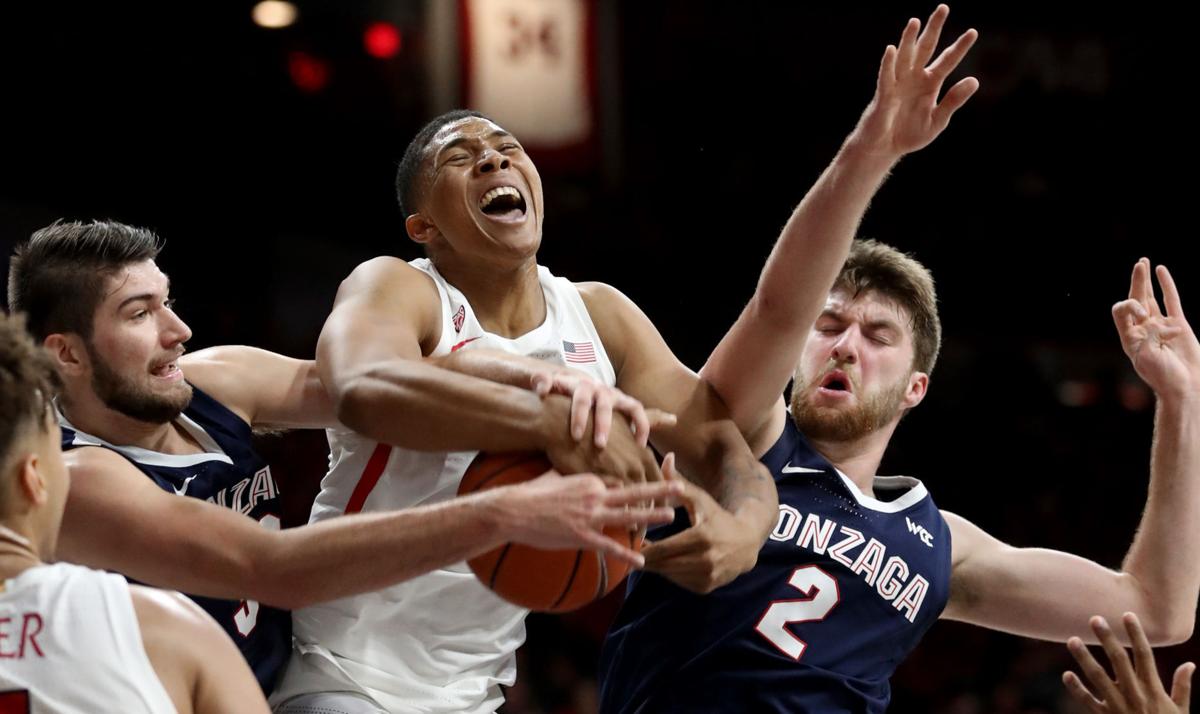Arizona is contracted to pay a total of $642,000 to seven nonconference game opponents next season, but the Wildcats now have some additional pandemic protection.
In contracts for the final two games completed in Arizona’s 2020-21 schedule, against Wyoming and Loyola Marymount, UA added a clause called “travel and play restrictions” that essentially says nobody will be held liable if the game cannot be played as a result of decisions by the NCAA, conferences or government authorities.
The clause also states that the two parties will make a “good faith effort” to reschedule the game to the extent allowed by governing bodies and, “if it cannot be reasonably rescheduled, this agreement will terminate and neither party will have any liability to the other.”
Arizona has already had a standard “force majeure” clause in all its game contracts (except for one with Gonzaga) that says neither school will be held responsible if the game is delayed, canceled or damaged because of war, natural disaster, labor disturbance, government or regulatory body order, riot, civil disorder or other causes outside the school’s control.
But Ryan Reynolds, the Wildcats’ director of basketball operations, said UA general counsel added the additional “travel and play restrictions” clause to provide extra protection considering the uncertainty caused by the coronavirus.
“Under the circumstances, it makes sense to add that clause,” Reynolds said.
Other UA nonconference game contracts were written before COVID-19 hit college sports in March, so they only have the force majeure clause — except for the Gonzaga contract, which was written in 2015 and has no clause addressing cancellations stemming from outside forces.
All UA game contracts also have a clause requiring schools who cancel a one-time appearance to pay $50,000 or, for those who cancel a two-year home-and-home agreement, to pay $100,000. But those are typically added to address a school that pulls out for competitive reasons, believing it needs to adjust its schedule one way or another because of its roster that season.
“It’s never happened to us but the reason that clause is in there is because it does happen,” Reynolds said. “It’s just to protect us. But if they have to pay the fee typically it’s going to come from a donor or a coach.”
It’s unclear what might happen if a team has to forfeit a game because too many players have tested positive for COVID-19 but, like so many things these days, it’s a fluid situation.
“We haven’t really discussed it,” Reynolds said. “Those are all unknowns at this point.”
Of Arizona’s 31 games next season, 20 will be played as part of the expanded Pac-12 schedule, two will be part of the NIT Season Tip-Off in Brooklyn, and nine will be single nonconference games.
Those nine nonconference games include marquee road games at Gonzaga and Illinois — which are both the second half of two-year “home-and-home” agreements — plus home games against NAU, Northern Colorado, LMU, Wyoming, Cal State Bakersfield, Cal Baptist and Montana.
All of the nonconference opponents visiting McKale Center are on “guarantee” contracts, meaning they will be paid a set amount in lieu of sharing gate or television revenue.
LMU, Wyoming, Cal Baptist and NAU are all contracted to receive $90,000 while Northern Colorado will get $92,000, and Montana and Bakersfield will get $95,000.
All guarantees are for one appearance only except NAU, which has signed a deal to receive $90,000 each of the next three seasons in exchange for becoming the Wildcats’ regular-season opening opponent.
Arizona’s appearance in the Thanksgiving-week NIT Season Tip-Off, meanwhile, won’t be profitable for the Wildcats.
Organizer ESPN Events is contracted to pay UA a stipend of $50,000 for its appearance but Reynolds estimated UA would spend about $150,000 in travel costs for the event.





